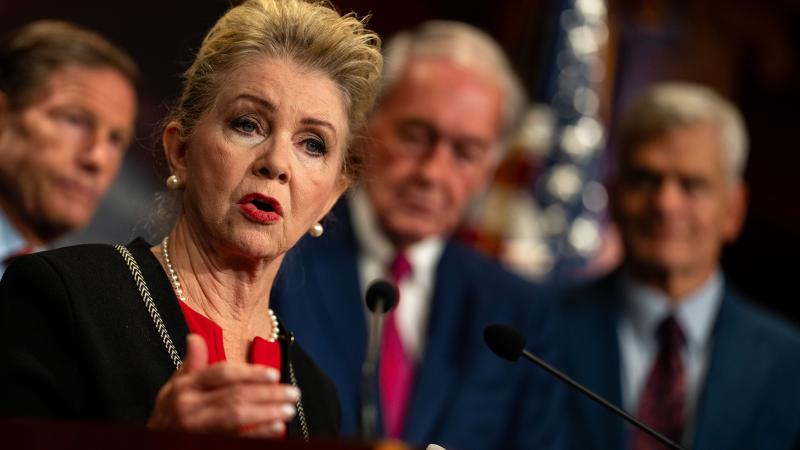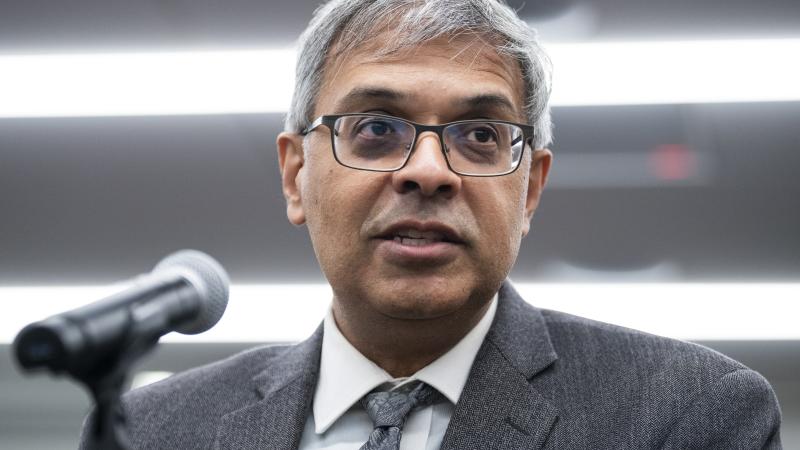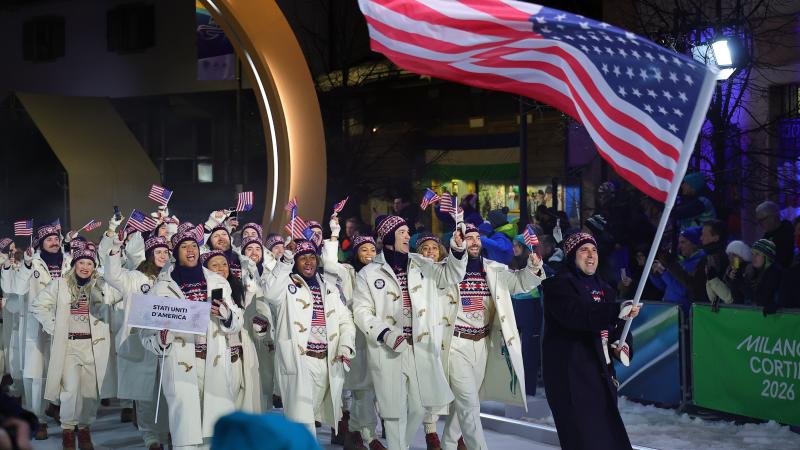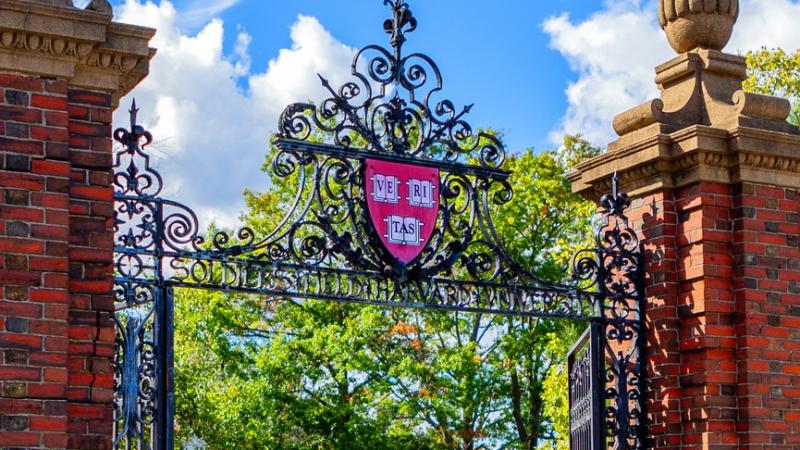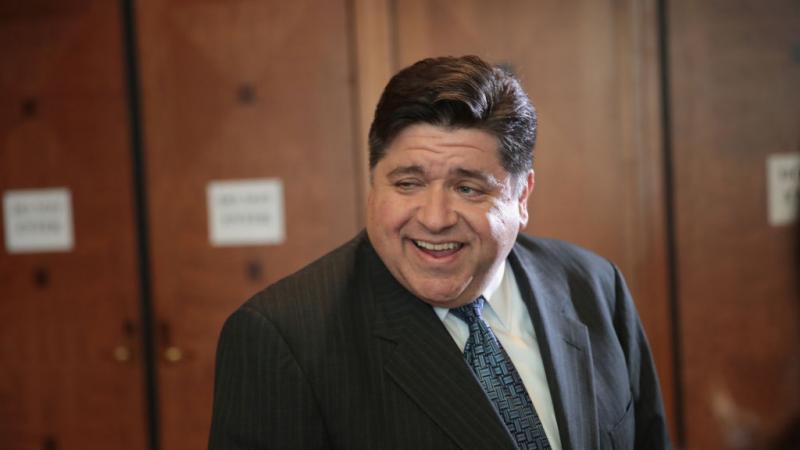Bipartisan legislation to reform DC's criminal law makes progress to fight crime in the capital
Congress has moved to codify changes to D.C. law to encourage a crackdown on violent crimes in the nation’s capital. Changes include lowering the age of "juvenile" defendants, which currently can apply to 24-year-olds.
Efforts by Republicans to cement the Trump administration’s progress against crime in Washington, D.C. received a boost after the House passed reforms to the capital city’s criminal codes with some modest support from Democrats.
The legislation is part of a race to codify important changes to the law to lower crime since the federalization of the D.C. police expired last week and a deadline quickly approaches for the end of National Guard deployments to the city in November.
The measures, which passed the chamber on Tuesday, would overturn D.C. policy that allows defendants to be charged as juveniles until the age of 24 and open the door for charging juveniles as young as 14 as adults for serious offenses, as well as eliminating the revolving door of "cashless bail."
These reforms respond directly to calls from the U.S. District Attorney for D.C., Jeanine Pirro, to amend the laws that she said contributed to the scourge of violent crimes from both juveniles and young adults in the nation’s capital.
Part of the difficulty in analyzing the data for D.C.'s crime rate is that many studies supporting increased teacher pay and additional hiring of social workers as opposed to stricter enforcement defines juveniles as under 18 years of age, thus skewing the data.
The non-profit D.C. Policy Center, relying on those flawed statistics, in 2023 endorsed the notion that "instead of spending $30 million dollars on more officers, these funds should be spent on more violence interrupters, credible messengers, or school-based social workers. Another viable solution would be the expansion of D.C.’s universal basic income or direct cash assistance pilots."
Avoiding the "soft on crime" tag: Democrats jumping on board
The passage of the bills with bipartisan support is further indication that some Democrats are willing to jump on board to help solidify the progress the city has made with Trump’s federal support in combating crime.
They follow D.C. Mayor Muriel Bowser, a Democrat who, despite initial disagreements with President Donald Trump over his decision to assume emergency control of the Metropolitan Police Department this summer, now thanks him for the surge of federal resources—crediting the help of federal agents and National Guard members for the decrease in crime since the crackdown began.
These bills are only the first of the roughly 12 separate measures being considered by lawmakers to curb violent crime in the capital city. Others include a bill to modify the Home Rule Act—the 1971 legislation that granted D.C. self-governance—to extend the amount of time a president can federalize the district’s police force and a bill to eliminate the district’s cashless bail policy.
The measures that are passed will go to the Republican-controlled Senate. Though they face an uncertain future in the upper chamber, the Senate in 2023 passed a House-led measure, with some Democratic Party support, to stop the District from softening punishments for crimes that were signed into law by then-President Joe Biden.
"Liberation Day"
President Trump announced in August that he would federalize the D.C. police and bring other federal resources to the District in order to address persistently high violent crime there, which ranks among the highest in the world compared to other national capitals.
"I'm announcing a historic action to rescue our nation's capital from crime, bloodshed, bedlam, and squalor, and worse. This is Liberation Day in D.C. and we're going to take our capital back," President Trump said at a White House press conference in early August.
The president recognized the limits of his authority at the time. Almost immediately after invoking his powers under the Home Rule Act, the president said that he would ask Congress to act quickly to provide options for extending the Executive Branch's control over the city’s law enforcement.
“We’re going to need a crime bill that we’re going to be putting in, and it’s going to pertain initially to DC,” Trump said during a visit to the Kennedy Center just a day after signing an executive order federalizing the police. “We’re going to use it as a very positive example, and we’re going to be asking for extensions on that, long-term extensions, because you can’t have 30 days.”
Limits to Trump’s temporal control of the D.C. police is not the only thing the administration views as standing in the way of a long-term crackdown on crime. The U.S. Attorney for D.C. Jeanine Pirro also pointed to several of the city’s criminal codes that she says contribute to the rise in “youth violence” as root causes of the current problem.
Pirro specifically pointed to a 2018 D.C. law, the “Youth Rehabilitation Amendment Act,” which defines a “youth offender” as someone 24 or younger who commits a crime less serious than first-degree murder, or a handful of other violent offenses. “I can’t touch them, but they [the D.C. government] want to protect them,” Pirro lamented.
The most recent bills to pass congress are a direct response to her calls. The first, the D.C. CRIMES Act, lowers the age at which individuals can be tried as juveniles from 24 to 18 and requires sentences to align with adult mandatory minimums. The second, the Juvenile Sentencing Reform Act, allows certain minors, as young as 14, to be tried as adults for serious offenses. Both bills received at least some Democratic support in the House.
ABC News reported that speaking on the floor during the debate on the juvenile justice bill, Rep. James Comer, R-Ky., chair of the House Oversight Committee, emphasized the stricter guidelines would be for “serious crimes, including murder.” He added that D.C.'s definition of a juvenile is “seven years higher” than in other cities.
In recent years, juvenile arrests in D.C. have been about double the national average. City officials also noted that there has been an increase in juvenile involvement in certain criminal offenses across the district, including more than half of all robbery arrests and about half of all carjacking arrests in 2024 and 2025, respectively.
D.C. still faces administrative problems in fighting crime
Other long-term issues at the Metropolitan Police Department persist, despite the temporary orders from the Trump administration.
For years before the federal takeover, the MPD has faced a chronic shortage of officers. Departures are exceeding recruitment and leaving the force as many as 800 officers short of what's needed, a review by Just the News previously found. The most recent July 2025 Staffing and Attrition Report published by the MPD shows the department has consistently lost more officers to retirement, resignation and other causes than it has been able to recruit since 2019, the earliest year referenced in the report.
Additionally, the police department is also reportedly under investigation over allegations that its officials manipulated crime statistics. Just months before Trump’s federal takeover, the MPD quietly settled a retaliation lawsuit from a whistleblower who alleged the manipulation, Just the News previously reported. “MPD has a long history of trying to distort crime statistics in Washington, D.C., including downgrading felonies to misdemeanors,” the officer, Sergeant Djossou, claimed in her October 2020 complaint.
Responding to directives from senior leadership “to show the largest reduction in crime statistics,” Djossou said in her suit that, “MPD improperly reduced crime statistics by downgrading a number of felonies to misdemeanors, so that there will be "fewer" felonies in the statistics.”
Following the federalization, the U.S. Attorney's Office for the District of Columbia reportedly launched an investigation into Djossou's allegations. The U.S. Attorney's Office did not respond to an email from Just the News seeking comment about the status of that investigation.
House Republicans on the Oversight Committee are seeking to hold the city accountable and explore other avenues of reform. Three senior city officials—including Mayor Bowser, Chairman Phil Mendelson of the D.C. City Council, and D.C. Attorney General Brian Schwalb—are set to appear before the committee on Thursday.
The Facts Inside Our Reporter's Notebook
Links
- would overturn D.C. policy
- a bill to modify the Home Rule Act
- President Trump said at a White House press conference
- said during a visit to the Kennedy Center
- pointed to several of the cityâs criminal codes
- Youth Rehabilitation Amendment Act
- increase in juvenile involvement
- July 2025 Staffing and Attrition Report
- launched an investigation
- are set to appear
